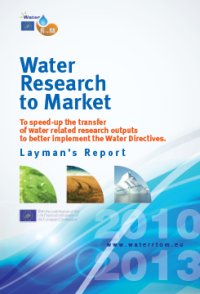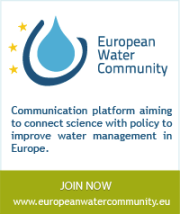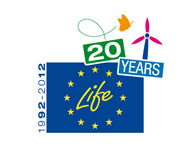LODORED
| Output characterisation | |
| OUTPUT SENTENCE | Sludge reducer for wastewater treatment plants |
| OUTPUT TYPE | prototype |
| WATER TOPIC | Industrial pollution |
| KEYWORDS | wastewater, food idustry, sludge |
| MARKET NEED TAILORED | Due to the rapid boost in the number of municipal and industrial wastewater treatment plants all over Europe driven by the implementation among others of the Urban Waste Water Treatment Directive 91/271/EEC, the amount of sewage sludge generated is progressively increasing. The efficient and environmentally sound management of the sludge generated by these plants is a problem that needs to be carefully considered. The state of the art methodologies for sewage sludge reduction are mainly based on a sludge degradation approach, whereas the approach to prevent sludge generation is rarely applied. LODOred product has been developed to reduce the production of biological sludge generation (surplus sludge) in biological wastewater treatment plants (conventional activated sludge systems, SBR systems) |
| OUTPUT DESCRIPTION | The LOdOred product line consists of different highly innovative products based only on natural organic and inorganic components with a strictly defined composition. Developed and designed for the use in municipal and industrial wastewater treatment plants using activated sludge systems without anaerobic digesters. The products substantially reduce sludge production and stabilize the biological treatment process. They are tailor-made for the specific type of application. |
| STATE OF DEVELOPMENT | Ready to use |
| INNOVATIVE ASPECTS AND ADVANTAGES | The main strategies for the surplus sludge reduction are focused on a desintegration approach; LODOred reduces the surplus sludge in the source, modifiying the metabolism of the microorganisms present at the activated sludge. The benefits of using LODOred are the following: · Reduction of biological surplus sludge generation up to 40% · Improvement of sedimentation abilities (SVI) · Biological system less sensitive against shock loads · Improved dewaterability (reduced polymer consumption, less time for sludge dewatering required, reduced energy consumption, increased equipment lifetime, lower labour costs) · Less negative environmental impacts by wastes from wastewater treatment |
| INTELLECTUAL/INDUSTRIAL PROPERTY RIGHTS | BIOAZUL S.L |
| TRANSFERABILITY | Transferable to other territories |
| POTENTIAL USERS/CLIENTS | Urban Waste Water Plants, Industrial waste water plants |
| BUSINNESS CASE | No |
| Estimation of risks | |
| INNOVATIVE DISADVANTAGE | Other solutions already in the market |
| Steps ahead | |
| Estimation of ressources | |
| Contact | |
| TECHNICAL CONTACT | Jose Luis Bribian |
| COUNTRY | SPAIN |
| WEBSITE | www.bioazul.com |
| WATER RTOM CONTACT | beatriz.medina@amphos21.com |
| Background | |
| PROJECT NAME | Waste Red project |
| PROJECT ACRONYM | Waste Red project |
| PROJECT DESCRIPTION | The WASTEred project aimed to promote the use and encourage the market penetration of LODOred, a new and ECO-Innovative product, in the food industry (slaughterhouses, meat processing and dairy companies) in order to reduce the large amounts of sewage sludge generated in their wastewater treatment plants. The expected reduction decreases the environmental impact of these sectors, as well as the costs associated to the sludge management. |
| LEADER | BIOAZUL |
| TEAMS INVOLVED | TTZ Bremerhaven, Spanish Federation of Food and Drink Industries (FIAB), The Andalusian Cooperative Cattle Raising Corporation of the Valley of the Pedroches- COVAP, Prowater SP, Brenntag GmbH, The European Livestock And Meat Trading Union (UECBV). |
| COUNTRIES INVOLVED | GERMANY, PORTUGAL, SPAIN, |
| PROJECT LOCATION | SPAIN |
| FUNDING ORGANISATION | ECOINNOVATION ECO/08/239048/SI2.535244 |




